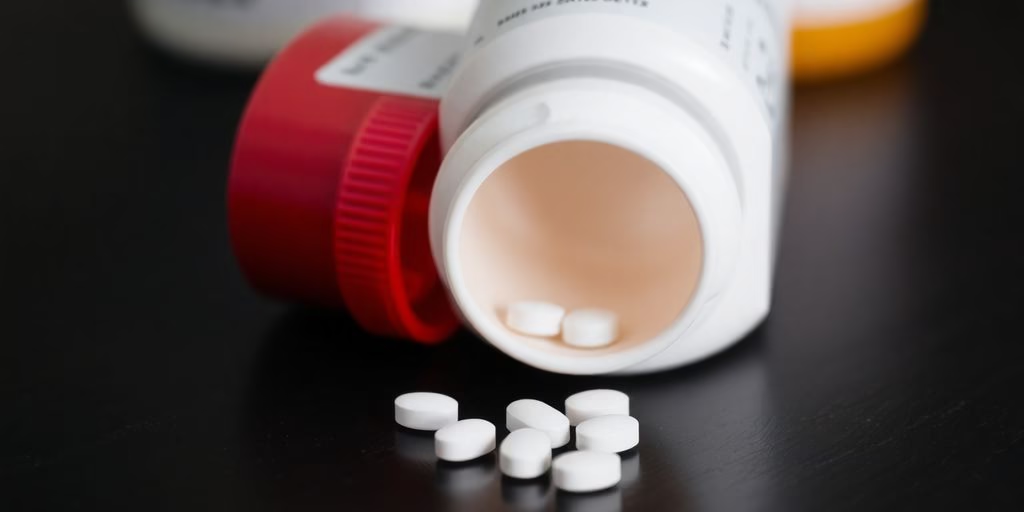When it comes to managing ADHD, understanding the different types of medications available is a big step. Many people wonder about the differences between stimulant and non-stimulant options. This article breaks down how each type works, helping you figure out what might be best for your situation. We’ll look at the factors that go into choosing a medication and what you can expect in terms of benefits and possible side effects.
Key Takeaways
- Stimulant medications are often the first choice for ADHD treatment because they work quickly by affecting brain chemicals related to attention and impulse control.
- Non-stimulant medications offer an alternative for those who don’t respond well to stimulants or experience bothersome side effects, working differently to improve focus and reduce impulsivity.
- The best ADHD medication for an individual depends on many things, including their specific symptoms, medical history, and how they respond to treatment, making a personalized approach with a healthcare provider very important.
Understanding ADHD Medications: Stimulants vs. Non-Stimulants

When it comes to managing Attention-Deficit/Hyperactivity Disorder (ADHD), medication often plays a significant role. For individuals in Texas, Washington, California, Iowa, and New York, understanding the different types of medications available is key to finding the most effective treatment plan. The two main categories of ADHD medications are stimulants and non-stimulants. Each works differently and has its own set of benefits and potential side effects. At Polished Mind Psychiatry, we aim to provide clear information to help you make informed decisions about your mental health care. Exploring these options is a good first step toward managing ADHD symptoms effectively.
How Stimulant Medications Work
Stimulant medications are typically the first line of treatment for ADHD. They work by increasing the levels of certain neurotransmitters in the brain, primarily dopamine and norepinephrine. These neurotransmitters play a big part in attention, focus, and impulse control. By boosting these chemicals, stimulant medications can help improve a person’s ability to concentrate, reduce hyperactivity, and manage impulsive behaviors. They generally start working quickly, often within an hour or two of taking them.
- Mechanism: Increase dopamine and norepinephrine in the brain.
- Effects: Improved focus, reduced impulsivity, decreased hyperactivity.
- Onset: Typically fast-acting.
It’s important to note that while effective, stimulants can have side effects. These might include decreased appetite, sleep problems, headaches, or irritability. Finding the right stimulant and dosage is often a process of trial and error, and it’s best done with the guidance of a healthcare professional. For those seeking to compare different stimulant options, resources detailing popular stimulant medications can be very helpful.
How Non-Stimulant Medications Work
Non-stimulant medications offer an alternative for individuals who don’t respond well to stimulants, experience significant side effects, or prefer not to take stimulant medication. These medications work differently. Some, like atomoxetine, specifically target norepinephrine, helping to improve focus and reduce impulsivity. Others, like certain antidepressants (e.g., bupropion), can also be effective for ADHD symptoms. Non-stimulants generally take longer to show their full effects, sometimes several weeks. They are not typically associated with the same risk of abuse or dependence as stimulants.
- Mechanism: Varies, often targeting norepinephrine or other neurotransmitters.
- Effects: Gradual improvement in attention and impulse control.
- Onset: Can take several weeks for full effect.
Common side effects for non-stimulants can include drowsiness, dizziness, or stomach upset. The choice between stimulant and non-stimulant medication depends on many factors, including individual response, medical history, and personal preference. If you’re interested in learning more about the differences, a comparative chart of ADHD medications can provide a good overview. Understanding the full spectrum of mental health treatments available is always beneficial.
Deciding on the right medication is a personal journey. It involves careful consideration of how different drugs affect your body and mind, alongside open communication with your doctor. What works for one person might not work for another, making a tailored approach essential.
For those in Texas, Washington, California, Iowa, and New York, consulting with a specialist at Polished Mind Psychiatry can help clarify these options. You can book an appointment to discuss your specific needs and find the best path forward for managing ADHD.
Choosing the Right ADHD Medication for You

Deciding on the best medication for ADHD is a personal journey, and it’s not a one-size-fits-all situation. At Polished Mind Psychiatry, we understand that finding the right fit involves careful consideration of individual needs and responses. Several factors come into play when making this important decision, and our team is here to guide you through the process.
Factors Influencing Medication Choice
When working with your healthcare provider to select an ADHD medication, several elements are typically discussed:
- Symptom Profile: The specific ADHD symptoms you experience most prominently (inattention, hyperactivity, impulsivity) can influence which medication might be most effective. Some medications may target certain symptom clusters better than others.
- Medical History: Pre-existing health conditions, such as heart issues, anxiety, or glaucoma, are important considerations. Certain medications may not be suitable for individuals with specific medical backgrounds.
- Response to Previous Treatments: If you’ve tried ADHD medications before, your past experiences, including effectiveness and side effects, provide valuable information for future choices.
- Lifestyle and Schedule: The duration of action for a medication and how it fits into your daily routine, including school, work, and social activities, are practical aspects to consider.
- Potential for Side Effects: All medications carry the possibility of side effects. Discussing these openly with your doctor helps in managing expectations and choosing a medication with a side effect profile that is tolerable for you.
Understanding the differences between stimulant and non-stimulant options is key. For a detailed look at specific medications, you can explore a comparative chart of ADHD medications.
Potential Benefits and Side Effects
Both stimulant and non-stimulant medications have the potential to help manage ADHD symptoms, but they work differently and can have varying effects.
Stimulant Medications:
- Benefits: Often considered the first line of treatment due to their high effectiveness in improving focus, reducing impulsivity, and managing hyperactivity. They tend to work quickly.
- Potential Side Effects: May include decreased appetite, sleep disturbances, headaches, stomachaches, and irritability. In some cases, they can also increase heart rate or blood pressure.
Non-Stimulant Medications:
- Benefits: Can be a good option for those who don’t respond well to stimulants, experience intolerable side effects from stimulants, or have co-occurring conditions like anxiety. They may take longer to show full effects but can provide consistent symptom management.
- Potential Side Effects: Commonly include drowsiness, fatigue, dizziness, nausea, and dry mouth. Some may also affect blood pressure.
It’s important to remember that individual responses to medication can vary greatly. What works well for one person might not be the best choice for another. Open communication with your healthcare provider is vital throughout this process. If you’re in Texas, Washington, California, Iowa, or New York and looking for personalized guidance on ADHD treatment, consider reaching out to us. You can book an appointment to discuss your options with our experienced team.
Finding the right medication is a collaborative effort between you and your doctor. It often involves a period of adjustment to find the optimal dosage and type of medication that best suits your needs and minimizes side effects. Patience and consistent communication are key to successful treatment.
When figuring out the best ADHD medicine for you, it’s important to know your choices. Different medicines work in different ways to help manage symptoms. Finding the right fit might take some time and talking with a doctor. Ready to explore your options? Visit our website to learn more about ADHD treatments and how we can help you find the best path forward.
Finding the Right Fit for ADHD Treatment
Deciding on the best medication for ADHD can feel like a big step. We’ve looked at how stimulant and non-stimulant medications work differently. Both have their own ways of helping manage ADHD symptoms, and what works well for one person might not be the same for another. It really comes down to individual needs and how your body responds. Talking openly with your doctor about your experiences and any concerns you have is super important. They can help guide you through the options and find a treatment plan that fits you best. Remember, Polished Mind Psychiatry is here to support you with personalized care. If you’re ready to explore your options or need help managing ADHD, booking an appointment is a great next step. You can easily schedule a time that works for you at Polished Mind Psychiatry
Frequently Asked Questions
How do stimulant medications help with ADHD?
Stimulant medications, like methylphenidate and amphetamines, are often the first choice for ADHD treatment. They work by increasing the levels of certain brain chemicals, called neurotransmitters, that help with focus and attention. Think of them as helping your brain’s communication system work more smoothly.
What’s the difference between stimulants and non-stimulants?
Non-stimulant medications work differently. They might affect brain chemicals over a longer period or in a different way than stimulants. Some examples include atomoxetine and guanfacine. They can be a good option for people who don’t do well with stimulants or need additional support.
How is the best ADHD medication decided?
Choosing the right medication depends on many things, like your specific ADHD symptoms, other health conditions you might have, and how your body responds. A doctor will consider all these factors to find the best fit. It’s important to have an open conversation with your healthcare provider about your needs and any concerns you have.




